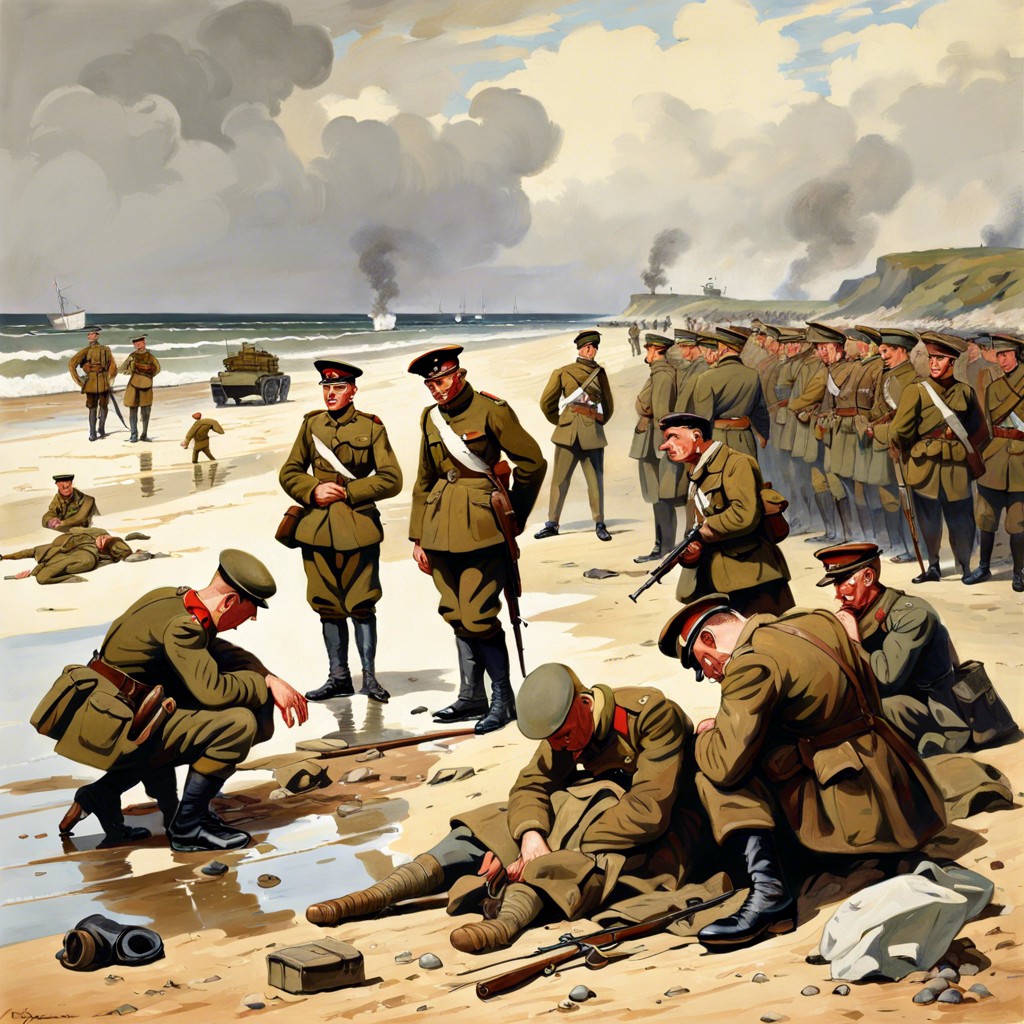If Greece had won the Greco-Turkish War, Europe’s geopolitical landscape and regional cultures might look very different today.
Imagine a world where Greece triumphed in the Greco-Turkish War! Such a twist would turn history on its head, reshaping borders and boiling geopolitics. Dive into a topsy-turvy scenario of refugee swaps, economic upheavals, and cultural showdowns. What would happen to Turkish nationalism, and could there ever be a fusion of identities? Buckle up—this article delivers all the juicy details!
Key takeaways:
- Greece’s geopolitical influence reshapes alliances and balances.
- Reverse refugee crisis leads to cultural fusion and economic shifts.
- Asia Minor thrives under Greek dominance with newfound resources.
- Cultural blending and clashes under Greek administration.
- Turkish nationalism falters, Atatürk’s reforms delayed, leadership struggles.
Centennial Border Shifts and Geopolitical Ramifications

Imagine a 20th-century map where Greece, not Turkey, holds sway over Anatolia. Transformative, right? The redrawing of borders would not just be a cartographer’s nightmare; it would ripple through geopolitics.
For starters, Greece’s influence would extend deep into Asia Minor, altering alliances. The Mediterranean balance shifts. Greece becomes a major regional player, potentially realigning with Western powers earlier.
Consider the Balkan states. Greece’s newfound territory could spark unrest or even envy, triggering border disputes or regional alliances shifting like sand dunes in a desert storm.
Then there’s the Ottoman Empire’s remnants. A weakened Turkey might struggle more intensely with internal revolution, possibly delaying or reforming Atatürk’s sweeping changes.
Finally, the Soviet Union might eye an emboldened Greece warily. A larger, more powerful Greece could mean a stronger southern NATO ally, altering Cold War dynamics profoundly.
Refugee Crisis: A Reverse Scenario
Picture this: a sea of people flowing in the opposite direction. Instead of the historic exodus of Greeks from Anatolia, now imagine Turks streaming westward. The demographic fabric of both nations would have been drastically re-woven.
First, cities like Smyrna (modern Izmir) wouldn’t have seen the wholesale evacuation of Greeks. Communities that had once lived side-by-side might have become even more entwined, instead of violently separated.
Second, the infrastructure and resources of Greece would have faced immense strain managing a sudden influx of Turkish refugees. Makeshift settlements, emergency aid protocols, and potential cultural friction would become pressing affairs.
Third, consider the social impact: Greece might have witnessed an enriched tapestry of cultural practices, cuisine, and traditions. Turkish musical rhythms blending with Greek melodies could have created some unique tunes worth dancing to at local tavernas.
Meanwhile, Turkey would grapple with the loss of pivotal coastal territories, altering its economy and perhaps even shifting its developmental focus inland. What a topsy-turvy world that would have been—cultural kaleidoscopes and economic juggling acts all around.
Economic Prospects in a Greek-Dominated Asia Minor
Imagine olive oil and feta cheese dominating not just your salads but entire market economies.
Greece’s hypothetical victory could turn Asia Minor into a thriving extension of Greek commerce. Port cities like Smyrna might rival major European trade hubs, bustling with merchants, tourists, and possibly the odd pirate reenactor.
This economic boost could provide Greece with natural resources previously untapped. They’d gain strategic access to oil reserves and mineral riches, inviting multinational corporations to set up shop.
A pro-Greek policy would likely mean investment in infrastructure. Railroads, harbors, and roads connecting the region could transform it into a trade superhighway. Picture the ancient Silk Road, but with more souvlaki stands.
Agricultural sectors would also get a makeover. Under Greek administration, these lands might see innovations in farming techniques, pushing the region to excel in exports like wine and spices.
Currency could stabilize with the power of the drachma back in play, reducing economic volatility and fostering a more inviting environment for international investors.
In a nutshell, think of Asia Minor as not just an archaeological goldmine but also a bustling economic frontier. The opportunities could be endless, and if nothing else, we’d never run out of olives.
Cultural Fusion or Clash: Impacts On Heritage and Identity
Picture a world where we swap olive oil for kebabs in Athens, and souvlaki for baklava in Smyrna. If Greece had emerged victorious, imagine the cultural mishmash, where Byzantine churches coexist with Ottoman mosques under Greek administration.
Language barriers would become an artistic tapestry, as Greek and Turkish words blend into an everyday dialect. Cuisine would be an eclectic feast, with meze platters featuring both feta and hummus.
Art and architecture might morph into a fascinating blend. Greek neoclassical facades could border Ottoman-style courtyards, creating unique skylines.
Yet, not all would be harmonious. National identities could face strain. While students might learn both the Iliad and the epic of Dede Korkut in schools, there would also be the challenge of reconciling two distinct historical narratives.
Intermarriages might foster unity but could, paradoxically, rekindle old prejudices. People’s loyalty split between two rich heritages might create complex social dynamics.
It’s a complex mosaic, with vibrant pieces and inevitable cracks.
Repercussions for Turkish Nationalism and Leadership
Imagine Mustafa Kemal Atatürk sidelined. Instead of rising as a national hero, leading Turkey into modernity, he’d be a footnote in history books. The loss in such a pivotal conflict would have undermined the nascent Turkish Republic at its core.
Without a clear victory, Turkish nationalism might never have coalesced into the powerful force it became. Morale-hit citizens would likely face identity confusion. Which way to lean, Ottoman nostalgia or new-wave reforms?
Power struggles would ensue. Who’s leading this ship, anyway? Uncertainty breeds turmoil, possibly opening doors for extremist ideologies to take root. Think political chaos, with leaders constantly on the chopping block. Fun, right?
Hindered by territorial losses, Turkey’s geopolitical stance would weaken. Talk about ripple effects; neighboring nations would be jostling for influence over a fractured state. Unstable Turkey, unsure direction. Sounds like a chess game with missing pieces.




